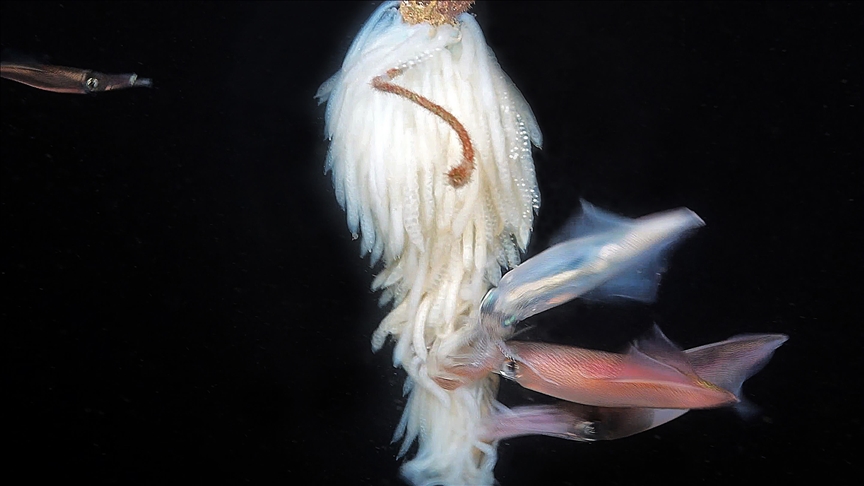Squid dominated ancient Cretaceous period: Study
Evidence suggests squid far outnumbered ammonites, fish -- opposite of previous assumptions
 (Photo by Tahsin Ceylan)
(Photo by Tahsin Ceylan)
ANKARA
Japanese researchers have found that the world's oceans during the Cretaceous period, 70 million to 100 million years ago, were dominated by squid, media reports said Saturday.
Researchers from the Department of Earth and Planetary Sciences at Hokkaido University said evidence suggested that squid far outnumbered ammonites and fish -- the opposite of previous assumptions, Tokyo-based Kyodo News reported.
The research, published in the journal Science, said the soft-bodied creatures appeared 100 million years ago and diversified rapidly over the course of around 6 million years.
Squid rarely fossilized, with typically only their beaks remaining after decomposition.
The team identified 263 fossils of squid beaks, averaging about 4 millimeters (0.2 inches) in length, while analyzing Cretaceous period rocks found on Japan's northern main island of Hokkaido.
Based on the shapes of the beaks, the team was able to classify the squid into 40 species, some of which were similar to modern squid.
Squid established their position in the marine ecosystem earlier than fish and whales, diversified after the mass extinction event at the end of the Cretaceous period, and have remained a central presence to this day, said the study.
*Writing by Aamir Latif








